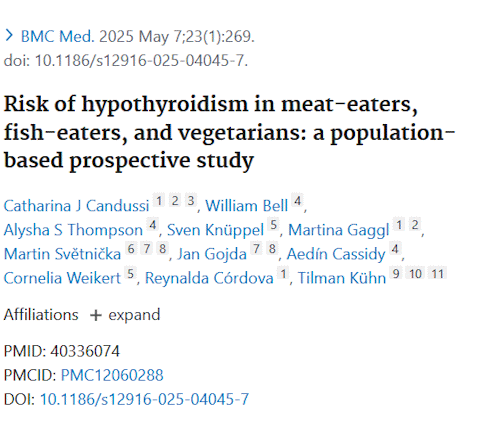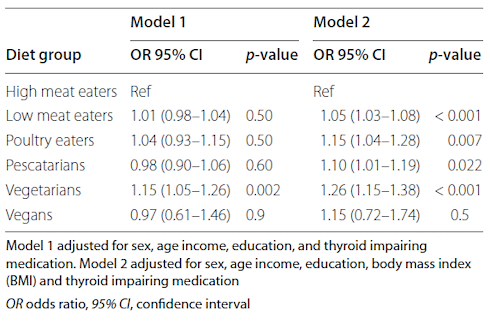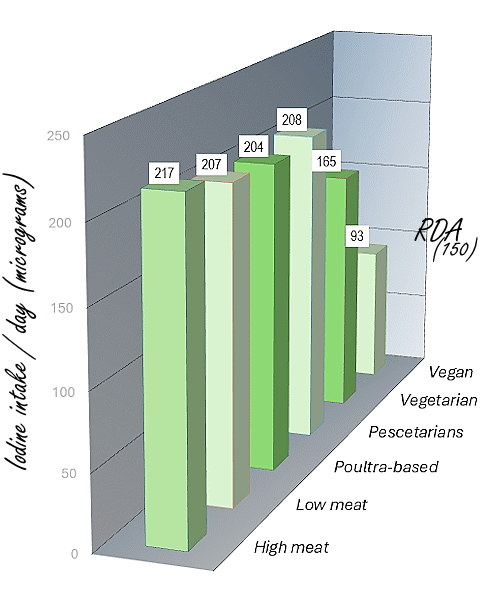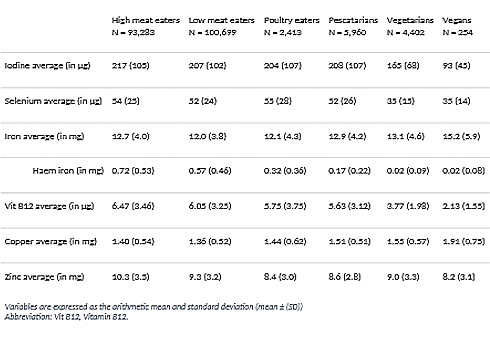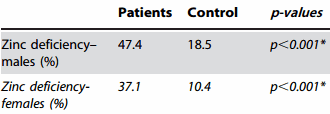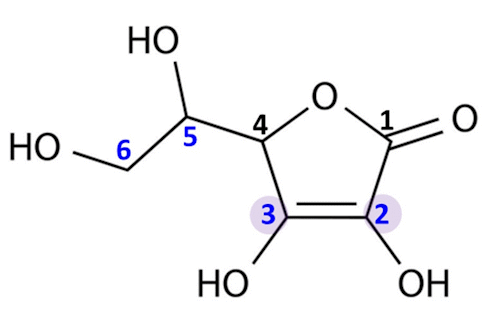|
Definition: "An ergogenic aid is any substance or phenomenon that enhances performance "
|
|
||||||||
26.05.2025 |
|
|
Iodine deficiency threatens vegetarian thyroid
Cutting meat from your diet increases your risk of developing an underactive thyroid, or hypothyroidism. This was discovered by Austrian epidemiologists who analysed British data. Eliminating meat reduces iodine intake. And selenium intake, for that matter.
Study
In the group as a whole, this happened in 10,831 study participants. So we are talking about a chance of 2.3 percent.
The reason for the research was the studies in which vegetarians and vegans sometimes get very little iodine. The thyroid gland uses iodine as a raw material for thyroid hormone.
Results
The poultry-eaters, fish-eating vegetarians or pescetarians, and fish-avoiding vegetarians each accounted for 1-2 percent.
The vegans were so small in number that their share was negligible. The Austrians found a trend that vegans were more likely to be hypothyroid than heavy meat eaters, but the difference was not statistically significant. This was probably because there were few vegans in the researchers' database.
In the other groups - the low-meat eaters, the chicken eaters, the pescetarians, and the other vegetarians - the chance of an underactive thyroid was higher than in the heavy meat eaters. This was especially the case for the vegetarians.
Iodine
The figure below relates to an average intake. In 2014, the European EFSA concluded that adults need 150 micrograms of iodine daily. [EFSA 2014;12(5):3660.]
If you look at the percentage within a group that gets too little iodine, vegans and vegetarians score poorly. In these two groups, 93 and 44 percent respectively consume less than 150 micrograms of iodine per day.
Selenium
The table below - click on it for a larger version - that we found in the supplementary data section of the Austrian study shows that the average intake of selenium was too low in all groups. In the vegetarians and vegans it was even alarmingly low.
According to EFSA, adults should consume 70 micrograms of selenium daily. [EFSA J. 2014;12(10):3846.] Even among heavy meat eaters, the average intake is below that.
Supplementing
Source: More:
|
|
||||||||||||||||

